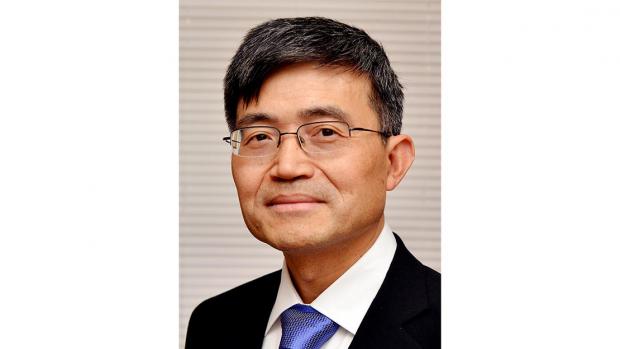Zhong-Ping Jiang elected to the European Academy of Sciences and Arts

Zhong-Ping Jiang, professor of electrical and computer engineering, affiliate professor of civil and urban engineering and director of Tandon’s Control and Network (CAN) Lab, has been elected to the European Academy of Sciences and Arts, an organization whose mission is to stimulate cross-disciplinary collaboration between reputable scientists of all disciplines, leading artists and practitioners of governance. Their purpose is to analyze important societal challenges and to help solve complex issues for the wellbeing of Europeans’ future.
The Academy brings together over 2000 eminent scholars and practitioners, among them 38 Nobel Prize winners, from across Europe and other non-European countries. They are divided into 7 classes: Humanities, Medicine, Arts, Natural Sciences, Social Sciences, Law and Economics, Technical and Environmental Sciences and World Religions. Jiang was elected as a member of the Natural Sciences class.
“It’s a privilege and a great honor to be part of this prestigious group of people including 38 Nobel laureates,” said Jiang. “I hope to take advantage of this new connection and develop collaborations with some of these distinguished researchers in the future.”
Jiang — who is also an affiliated member of Tandon’s Center for Advanced Technology in Telecommunications (CATT) and Connected Communities for Smart Mobility towards Accessible and Resilient Transportation for Equitably Reducing Congestion (C2SMARTER) — has a vast body of work which focuses on interdisciplinary problems at the interface of control and learning for network systems, with applications to multi-agent systems, connected and autonomous vehicles, robotic networks, and cyber-physical systems.
A selection of Jiang’s recent work includes: studying how the nervous system works under uncertain conditions and developing robust adaptive dynamic programming as a theory of human sensorimotor learning and control; developing safe and robust automated lane-changing technology; constructing an AI-based closed-loop coordinated signal control system for multiple intersections, along with routing strategies for the smooth distribution of traffic flows — a complex undertaking since traffic flow systems are dynamic and nonlinear, and subject to randomness; and creating resilient next-generation wireless networks that will enable secure, robust, and high-performance applications in many increasingly critical domains, including education, business, transportation, and healthcare.
Jiang earned his Master’s degree from the University of Paris XI, France, and his Ph.D. degree from the École des Mines de Paris under Professor Laurent Praly. He then undertook postdoctoral work at the INRIA Sophia Antipolis-a well-known National Research Institute in France.
His European connections extend beyond France, however; in 2015, for example, he spent a sabbatical from NYU Tandon at the University of Cambridge, where he worked alongside renowned neurobiologist Daniel Wolpert to apply his control-systems and reinforcement learning theories to computational and systems neuroscience. Additionally, he has served as an assessor for the Belgian Research Foundation, Luxembourg’s Fonds National de la Recherche, the Czech Science Foundation, and the Dutch Research Council. He also sat on committees at such European-based institutions as Stockholm’s Royal Institute of Technology, Ecole Polytechnique Fédérale de Lausanne, Eindhoven University of Technology, Imperial College London, and Italy’s University of Trento.




